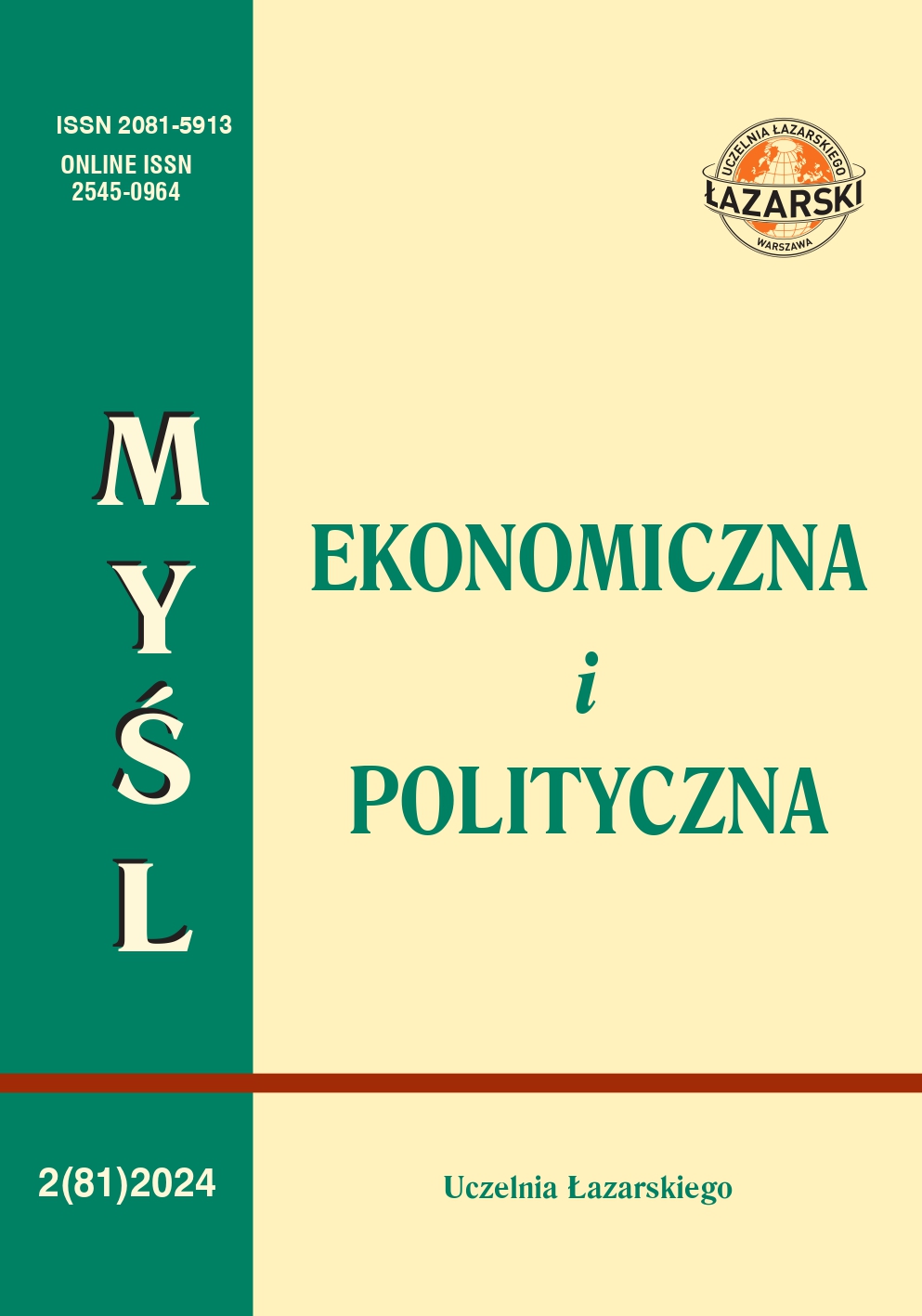Abstract
The study uses empirical data from 1999 to 2020 to examine empirically the Leviathan hypothesis for Poland, a unitary country with /a/ decentralised financial system. The research hypothesis being tested is that the degree of financial decentralisation and the size of the government sector are negatively related to each other. Factors that stimulate or constrain the growth of the government sector and public expenditures are also identified. The basis of the macroeconometric modelling is a multivariant cointegration analysis. The Leviathan hypothesis being rejected or confirmed is found to depend on the type of measure of decentralisation and public sector. The size of the government sector measured by the GDP share of public expenditures decreases in the long term following the administrative decentralisation. In contrast, the decentralisation of own revenues reduces the ratio of public administration employees to Poland’s total population. These relationships support the validity of the Leviathan hypothesis. However, in the long term, the decentralisation of public expenditure increases the GDP share of total public expenditure and public administration employment in relation to the working‑age population in the country. Meanwhile, in the long-term, the decentralisation of expenditures on administration and administration staff salaries increases government administration employment in relation to the total population and the working‑age population. These cases provide grounds to reject the Leviathan hypothesis.

